Colombia: Anatomy of a lockdown
For more than two months, an eerie silence enveloped the banks of the mighty Caquetá River, where the greenery of the jungle meets the flowing waters and indigenous and farming communities live in …
For more than two months, an eerie silence enveloped the banks of the mighty Caquetá River, where the greenery of the jungle meets the flowing waters and indigenous and farming communities live in …
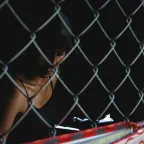
… electricity. Many businesses were shut, many jobs simply no longer existed. You couldn't …
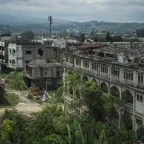
COVID-19 poses unprecedented challenges to states and communities across the globe. Like in many other countries, the International Committee of the Red Cross (ICRC) has joined the massive efforts …
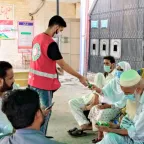
- A story for the 10th anniversary of the IHL moot court The Law School of Nanjing University had never reached the final eight of an IHL Moot Court competition, narrowly finishing ninth two years …

Pierre Reichel worked for the ICRC in Nagorny Karabakh during 1994 and 1995. He recently talked about his experiences May 1996. The ICRC takes part in the transfer of detainees, in its capacity of …
… wait in queues from dawn to sunset for jobs. This scarcity of employment …
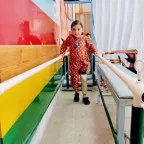
Fartun Nur Abdulle, 25, Dusamareb, Galgaduud region. Experience as a midwife: Three years Fartun holds a dummy baby during an obstetrics training held in Nairobi for SRCS midwives. “My mother …
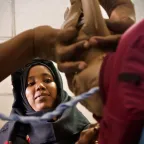
The international armed conflict between Russia and Ukraine affects millions of people and the recent increase in military operations - as well as the destruction of the Nova Kakhovka dam - are …
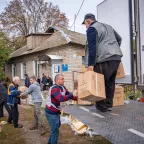
In a series of online articles, the ICRC team in London interviews British and Irish delegates working across the world. This month, we speak to Rieke Hayes, a physiotherapist from Ireland. After …
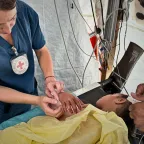
… workers are safe and able to carry out their jobs is crucial for their protection. Their …
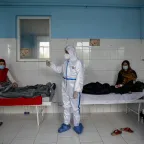
Try one of the following resources:
Created in 1863, the ICRC library, alongside the ICRC archives, provides an indispensable documentary reference on the organization itself and international humanitarian law.
International humanitarian law is based on a number of treaties, in particular the Geneva Conventions of 1949 and their Additional Protocols, and a series of other instruments.
Customary international humanitarian law consists of rules that come from "a general practice accepted as law" and that exist independent of treaty law.